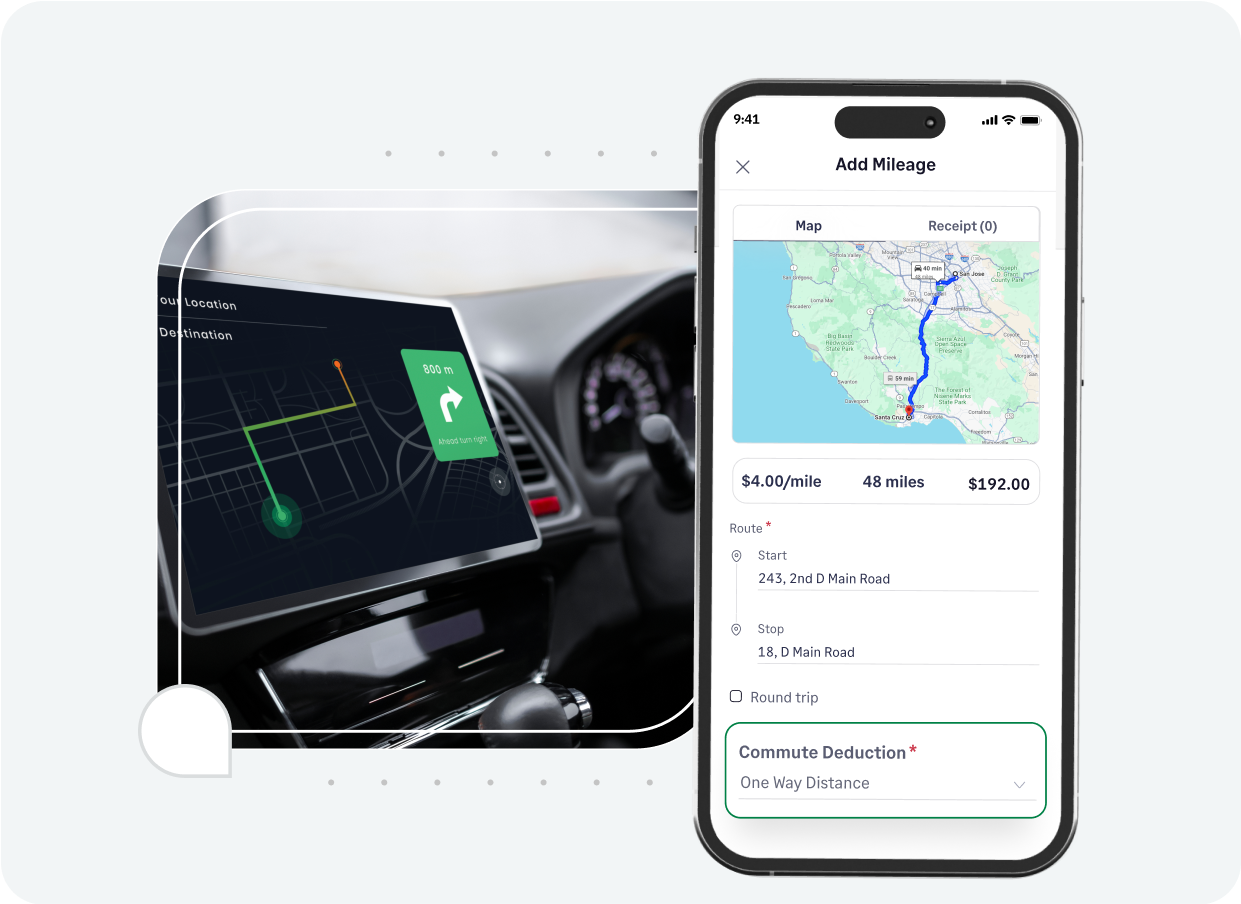In Tennessee, understanding mileage reimbursement involves looking at federal guidelines, specific state rules for workers' compensation and state employees, and the general practices adopted by private employers.
For businesses and employees in Tennessee, knowing these rates and rules is key to fair compensation and compliance.
The most frequently referenced standard for business mileage reimbursement is the rate set by the Internal Revenue Service (IRS). For the year 2025, the IRS has announced the standard mileage rate for business use at 70 cents per mile. This rate was 67 cents per mile for 2024.
While Tennessee private employers are not generally mandated by a specific state law to use the IRS rate for all business mileage, many choose to do so because:
- It offers a clear, widely accepted benchmark.
- Reimbursements under an accountable plan at or below this rate are typically non-taxable for employees and deductible for employers.
As of January 1, 2025, the key IRS standard mileage rates are:
- 70 cents per mile for business use of a vehicle.
- 21 cents per mile for medical or moving purposes (note: the deduction for moving expenses is currently limited to active-duty members of the U.S. Armed Forces).
- 14 cents per mile driven in service of charitable organizations.
Other relevant rates in Tennessee include:
- Tennessee State Employee Rate: The State of Tennessee's travel regulations stipulate that the reimbursement rate for state employees using their personal vehicles for official state business aligns with the current IRS standard rate. For 2025, this is 70 cents per mile.
- Workers' Compensation Medical Travel: Injured employees in Tennessee are entitled to mileage reimbursement for travel exceeding 15 miles one way for authorized medical treatment. The rate set by the Tennessee Bureau of Workers' Compensation is 70 cents per mile, effective January 1, 2025.
For historical context, here are the IRS standard business mileage rates from recent years:
Tennessee Mileage Reimbursement Calculator
Simplify your mileage reimbursement calculations with our user-friendly Tennessee Mileage Reimbursement Calculator.
How to Use the Calculator:
- Select the correct tax year: Choose the year for which you're calculating reimbursement (e.g., 2025, 2024), as the applicable IRS rates can change.
- Input your business miles: Enter the total number of miles driven for business purposes using your personal vehicle.
- Calculate your reimbursement: The calculator will automatically apply the official IRS standard mileage rate for the selected year and display your estimated reimbursement amount.
This tool provides a quick and accurate estimate, beneficial for both employees needing to claim expenses and employers processing those claims.
Calculate
Results
Some Important Tennessee Mileage Reimbursement Laws
While Tennessee doesn't have a single law mandating mileage reimbursement for all private-sector employees in every instance, several state rules and federal regulations influence how employers should handle these expenses:
1. Tennessee Minimum Wage & Federal FLSA
Tennessee does not have its own state minimum wage law. Therefore, employers must adhere to the federal Fair Labor Standards Act (FLSA), which mandates a minimum wage of $7.25 per hour.
Crucially, any unreimbursed business expenses required of an employee, such as mileage for using a personal vehicle for work, should not cause their effective hourly earnings to fall below this federal minimum wage for the hours worked in a pay period.
If it does, the employer could be in violation of the FLSA.
2. Workers' Compensation (Tennessee Bureau of Workers' Compensation Rules)
Tennessee law requires employers to cover necessary medical treatment for employees who suffer work-related injuries.
This includes the reimbursement of travel expenses if the travel to an authorized medical provider is more than 15 miles one way from the employee’s home or place of employment.
The mileage rate for this is set by the Bureau and is 70 cents per mile for 2025.
3. No General Mandate for Private Employers
Outside the context of ensuring minimum wage compliance under the FLSA and the specific requirements for workers' compensation, there isn't a broad Tennessee statute compelling private employers to reimburse for general business mileage at a specific rate or in all situations where a personal vehicle is used for work.
Company policy, therefore, plays a significant role in determining reimbursement practices.
Tennessee Mileage Reimbursement Law vs. Federal Law
Understanding the interplay between Tennessee's state context and federal laws is essential for proper mileage reimbursement:
Federal Law (FLSA)
The Fair Labor Standards Act (FLSA) is the primary federal law affecting this area in Tennessee. It mandates that employees receive at least the federal minimum wage ($7.25 per hour) "free and clear" of any business expenses incurred primarily for the employer's benefit.
If a Tennessee employee's unreimbursed mileage costs effectively reduce their pay below this federal threshold, the employer must provide sufficient reimbursement to meet the minimum wage.
Tennessee State Law
- Tennessee relies on the federal minimum wage.
- Specific provisions under the Tennessee Bureau of Workers' Compensation rules mandate mileage reimbursement for travel related to workers' compensation medical treatment under certain conditions.
IRS Regulations
The IRS sets the standard mileage rates (e.g., 70 cents/mile for business in 2025) for tax purposes. These rates are not legal mandates for employers to reimburse but are crucial for determining the non-taxable amount of reimbursement under an accountable plan.
Using these rates helps ensure that reimbursements aren't considered taxable income for employees and are deductible for employers.
In Tennessee, federal minimum wage law provides a crucial wage floor. State law specifically addresses workers' compensation travel. IRS guidelines then offer a practical framework for the amount and tax treatment of reimbursements, widely adopted by Tennessee employers.
How Sage Expense Management (formerly Fyle) can Automate Mileage Tracking
Manually logging miles and ensuring policy compliance can be a significant drain on time. Sage Expense Management offers a modern, automated solution to transform your mileage tracking and reimbursement process.
- Accurate GPS tracking: We use Google Maps for precise distance calculation. Enter start, stop, and end points, and Fyle automatically logs travel distance.
- Flexible rate configuration: Set custom rates or align with IRS standards. Sage Expense Management applies these automatically.
- Simplified commute deductions: Define home/work locations to accurately manage non-reimbursable commute mileage for IRS compliance.
- Automated recurring trips: Set up recurring mileage claims for regular routes, saving time on manual entries.
- Built-in policy enforcement: Embed company mileage policies into Sage Expense Management, setting rules for distance or amounts to ensure compliance before submission.
- Seamless accounting integration: Sage Expense Management syncs with leading accounting software (NetSuite, QuickBooks, Xero, Intacct), automating data entry.
- Direct ACH reimbursements (US only): Reimburse employee mileage claims directly from Sage Expense Management via ACH for timely payments.
By choosing Sage Expense Management, businesses can move beyond manual processes, saving time, enhancing compliance, and ensuring accurate, efficient reimbursements.


































